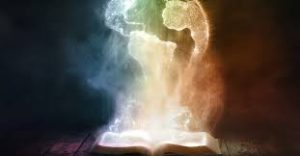The LORD’s Judgment Against the Nations
34: 1-17
Judgment is not a comfortable subject. Even the LORD Himself calls it His strange work and alien task (28:21). But it is an indispensable part of the Bible’s teaching about the last days. It has to do with the fact that God is King (Chapter 33). And as King, He must rule or He is no King at all. This means that rebellion must be put down. Even though ADONAI is beyond patient, it is clear that His anger is just and entirely devastating. We are fooling ourselves if we think any differently. Thus, there is an urgent call for all the nations to listen and pay attention.

The powerful poem here depicts the effects of God’s wrath upon the Gentile nations in the far eschatological future at the end of the Great Tribulation. In 34:1-4 the universal nature of the judgment is pictured. Not even the heavens themselves will escape. Then 34:5-8 applies this judgment to Edom, much as was done with Moab in 25:10-12. The language here is of sacrifice, reminding the reader that unless someone provides a sacrifice for our sins, we become the sacrifice. Ultimately, as the B’rit Chadashah makes plain, it is only God Himself who can offer that sacrifice for all (Is 53; Rom 5:5-10). Then 34:9-17 continues the address to Edom as the typical nation, depicting the land as left utterly desolate, inhabited by nothing but desert and desolation. If the language is severe and harsh here, it is because of the seriousness of the sin. The rebellion of a whole world against Ha’Shem is not a matter that deserves a slap on the wrist. Sin always takes you further than you want to go and costs you more than you want to pay. Nevertheless, there is a price to be paid.117
How do we relate to such a savage passage? We must see it through our Father’s eyes. Even through the eyes of Christ. We must ask ourselves where our trust really resides. Does it reside with the Edoms of the world? If so, we are headed into the desert with those Edoms. To put our ultimate trust in creatures instead of the Creator flies in the face of all logic, because one day all the nations will eventually be judged by Him.
Chapters 34 and 35 present a striking contrast between a productive Land turned into a desert (chapter 34), and a desert turning into a garden (Chapter 35). As a result, they end the collection of teachings concerning the nations and ADONAI’s sovereignty over them (Chapters 13 to 35). When all is said and done, Isaiah says the issue is really clear and simple. Sinful man cannot stand before a holy God. Any attempt to build a life apart from Him is futile. For all have sinned and fall short of the glory of God (Romans 3:23). In a real sense, either you accept the LORD’s sacrifice on the cross, or you become the sacrifice. Our only hope is the Rock in the wilderness (Exodus 17:6; Numbers 20:11; Psalm 78:15-16, 105:41).



Leave A Comment